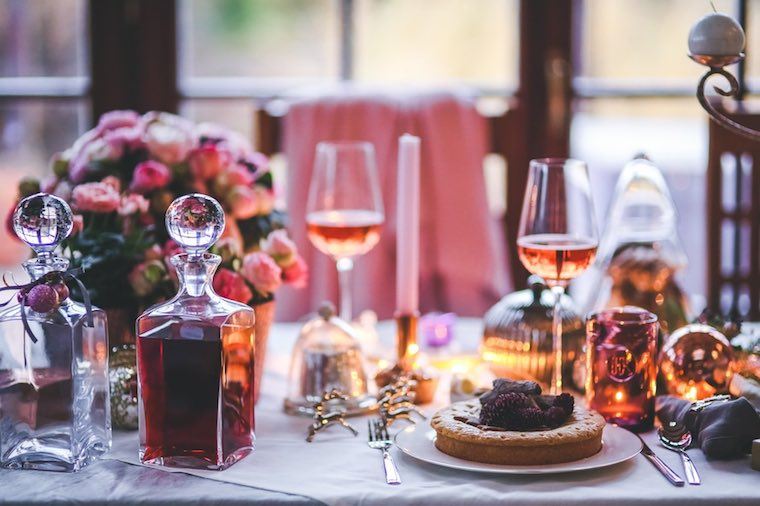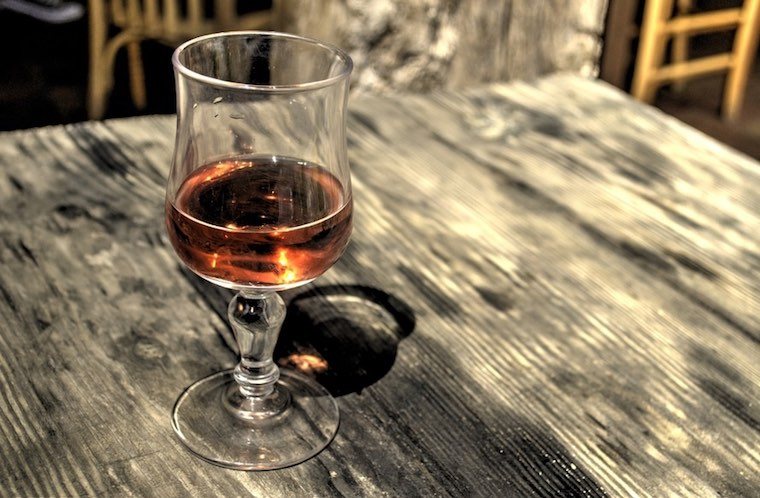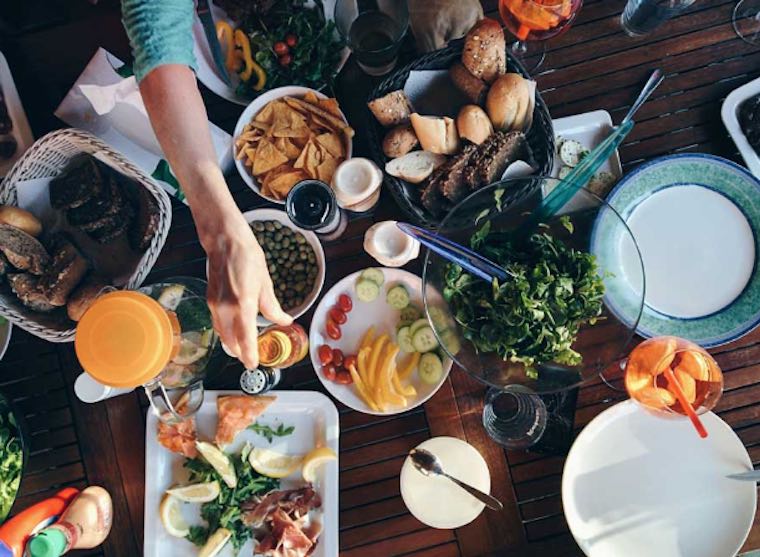Why Orange Wine Is the Summer’s Trendiest, Tastiest Drink (Sorry, Rose)
"Orange wine" is essentially slang for "skin-fermented wine," the term winemakers and sommeliers prefer. It might look similar to your favorite bottle of rose, but both the production process and the end result are notably different.
"With rose, you are taking the skins away from red grapes; [with] orange wines, you are leaving the skins on for a long time with white grapes. It adds body in your mouth that is associated with a bigger wine," says Scott Zwiezen, chef and owner of the aforementioned Elf Cafe.
Which might explain why it's been hyped as the summer's most in-demand drink: Orange wine is flavorful but not too heavy—oh yeah, and tastes delicious.
Want to learn more? Keep reading for all the orange wine facts, tips on what to pair it with, and how to know if you're buying a good bottle.

How it's made
Skin-fermented wines are just starting to get buzzy, but they've been produced for years, mostly in northern Italy, Slovenia, Georgia, Australia, and here in the US in New York and California. They're made from white grapes that are fermented with the skins and seeds included. (OK, history lesson—done.)
Even though orange wines are, well, orange, they're still made only with grapes. "It’s reflective of the conditions of how the wine has been fermented," says Christopher Nicolson, a winemaker at Red Hook Winery (which currently produces three different orange wines). "A warmer fermentation tends to give off more color from the skins. And a cooler fermentation will tend to not give out as much color from the skins." That explains why some are a deep orange, while others might look like the good ol' chardonnay you're used to sipping.

What it tastes like
Just like other whites, not all orange wines taste the same. (Guess you'll just have to try a bunch!) Nicolson explains that, generally, skin-fermented varietals are slightly nuttier in taste. "Something you might pick up right off the top is the smell of conifers, like pine trees, sap, and resin," he says, adding that a tropical or fruit aroma isn't out of place either.

{{post.sponsorText}}
Zwiezen was way ahead of the curve, having included orange wine on Elf Cafe's menu for the past three years. He likes that it has qualities of a red, but is much lighter for sipping. "If it’s a hot day and someone prefers to drink a white wine but is having it with something that might traditionally go with a red wine, the orange wine is a good way to bridge the gap," he notes.

What to pair it with
Because skin-fermented wine gives a big taste without feeling heavy, Zwiezen says it's perfect for a picnic or barbecue. "One thing that’s great about orange wine is that it does have a little bit more of that tannic presence that people sometimes want to have with heartier meat dishes," he notes. "When you’re outside and it’s warm, you don’t necessarily want a big cabernet during the middle of the day."
Also, even though orange wines are a type of wine white, Nicolson suggests you think outside the typical "goes-well-with-whites" box. "One thing that really pops into my mind is pairing skin-fermented white wines with charcuterie and cheese," he suggests.

How to know you're buying a good bottle
Until orange wine gets the two buck Chuck treatment, expect to spend a little more for a bottle (think around the $30 mark). And you'll likely need to head to a super-curated spot rather than the liquor store around the corner. "Go to a reputable wine shop that has an interest in [skin-fermented wines]," Zweizen says.
And since taste is totally subjective, your best bet is starting with a variety you already know you like. (So if you're into sauvignon blanc, try a skin-fermented sauvignon blanc.) The orange version won't taste exactly like the one you already know and like, but it gives a good base to start from.
Regardless of which bottle you land on, one thing is certain: The buzzy drink will definitely give you a nice buzz.
Okay, so you know what booze to bring to your next cookout. But have you thought about throwing greens on the grill? You should! These six recipes tell you how to do it. And this healthy slaw recipe is the perfect side dish.
Loading More Posts...